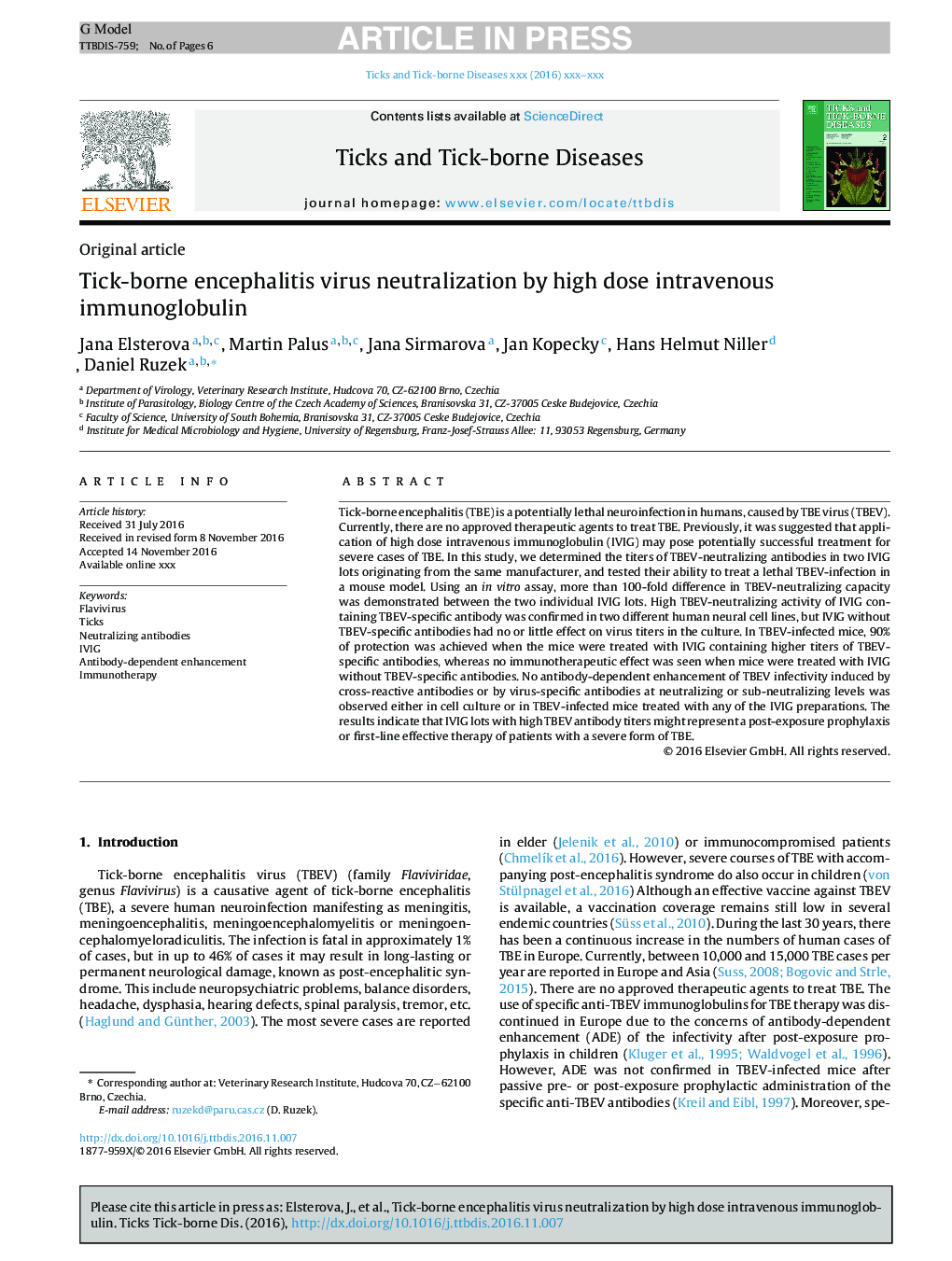| Article ID | Journal | Published Year | Pages | File Type |
|---|---|---|---|---|
| 5546475 | Ticks and Tick-borne Diseases | 2017 | 6 Pages |
Abstract
Tick-borne encephalitis (TBE) is a potentially lethal neuroinfection in humans, caused by TBE virus (TBEV). Currently, there are no approved therapeutic agents to treat TBE. Previously, it was suggested that application of high dose intravenous immunoglobulin (IVIG) may pose potentially successful treatment for severe cases of TBE. In this study, we determined the titers of TBEV-neutralizing antibodies in two IVIG lots originating from the same manufacturer, and tested their ability to treat a lethal TBEV-infection in a mouse model. Using an in vitro assay, more than 100-fold difference in TBEV-neutralizing capacity was demonstrated between the two individual IVIG lots. High TBEV-neutralizing activity of IVIG containing TBEV-specific antibody was confirmed in two different human neural cell lines, but IVIG without TBEV-specific antibodies had no or little effect on virus titers in the culture. In TBEV-infected mice, 90% of protection was achieved when the mice were treated with IVIG containing higher titers of TBEV-specific antibodies, whereas no immunotherapeutic effect was seen when mice were treated with IVIG without TBEV-specific antibodies. No antibody-dependent enhancement of TBEV infectivity induced by cross-reactive antibodies or by virus-specific antibodies at neutralizing or sub-neutralizing levels was observed either in cell culture or in TBEV-infected mice treated with any of the IVIG preparations. The results indicate that IVIG lots with high TBEV antibody titers might represent a post-exposure prophylaxis or first-line effective therapy of patients with a severe form of TBE.
Related Topics
Life Sciences
Agricultural and Biological Sciences
Animal Science and Zoology
Authors
Jana Elsterova, Martin Palus, Jana Sirmarova, Jan Kopecky, Hans Helmut Niller, Daniel Ruzek,
